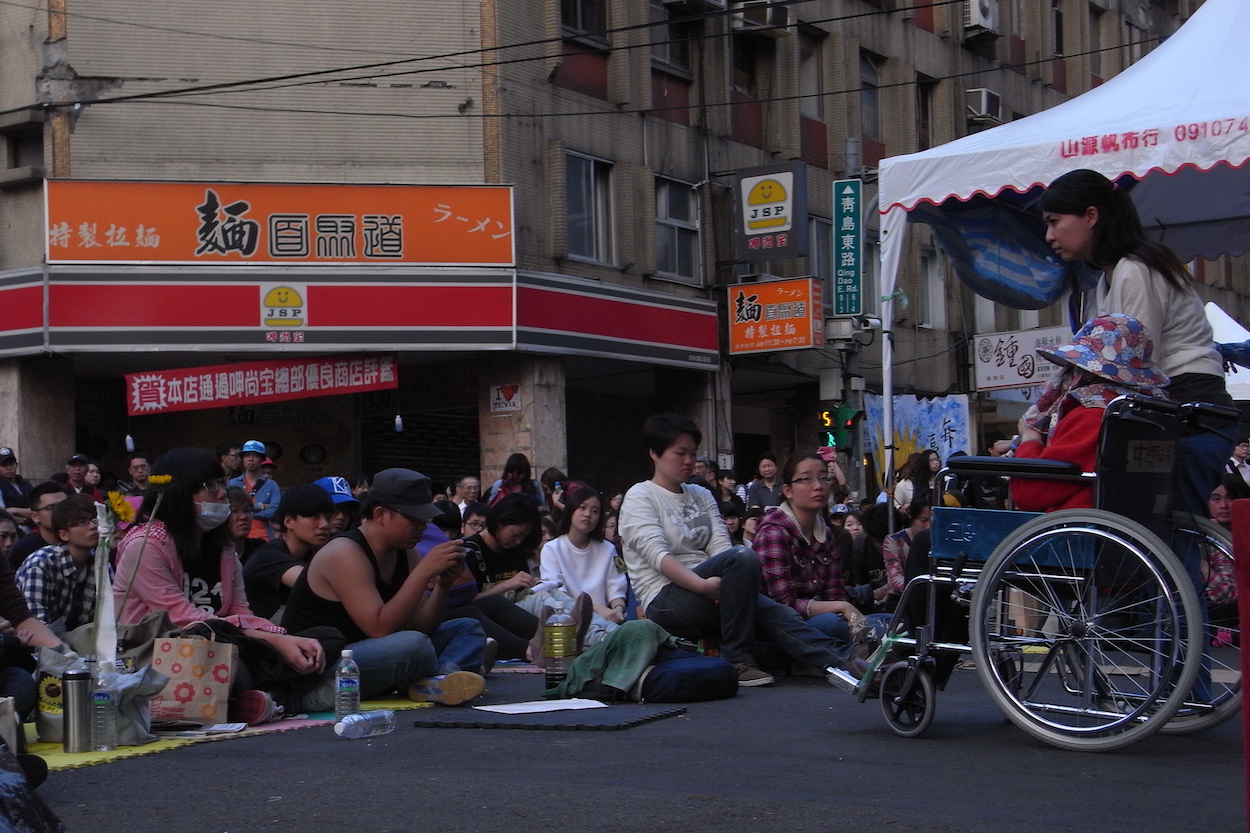The demand by youth activists working with sex workers’ support organization COSWAS (日日春關懷互助協會 or Collective of Sex Workers and Supporters) to preserve the Wenmeng Pavilion (文萌樓), a historic former brothel was a struggle not only to preserve a slice of Taiwanese history but to take a stronger stand for the rights of sex workers in Taiwan. COSWAS had been using the Wenmeng Pavilion as an office since 1997, when sex work was outlawed in Taipei (台北) by the Taipei city government under Chen Shui-Bian (陳水扁), and using parts of the building as a museum.

Photo credit: athenakuo/Flickr/CC
COSWAS and affiliated youth activists, then, called for a recognition of the rights of sex workers rather than their stigmatization as well as general improvements in sexual education in Taiwan. Activists demonstrating for the preservation of the Wenmeng Pavilion were often involved in the LGBTQ movement.

Talk on the Wenmeng Pavilion Struggle being given at the Legislative Yuan encampment on April 4th by Li Jun (麗君). Photo credit: ddio/Flickr/CC
The struggle against the city government to preserve the Wenmeng Pavilion can be situated in the struggle against urban demolitions of historic sites for the sake of commercial redevelopment, seeing as it was suspected that Wenmeng Pavilion would be demolished because of the valuable real estate it stood on once the building was acquired by a new owner in 2012. Before that, COSWAS had rented the first floor of the building for 14 years. The Wenmeng Pavilion, in Taipei’s Dadaocheng (大稻埕) area, was a Japanese-era colonial building originally constructed in 1925 and formerly a popular working class brothel during the Japanese colonial period, subsequently serving as a legal brothel from 1956 onwards until 1997.
Read More:

